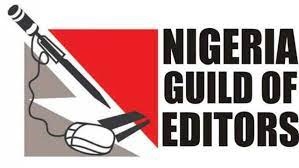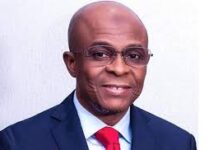. call on FG to secure life and property in the country.
The Nigerian Guild of Editors (NGE) has described the recent compromise of the security at the Nigerian Defence Academy in Afaka, Kaduna State, by gunmen as a worrisome dimension to insecurity in the country.
It called on the government at all levels to be more proactive and creative in tackling insecurity, and also in carrying out their constitutional duty of securing life and property in the country.
The NGE has also announced that its 17th All Nigerian Editors Conference (ANEC) will hold on October 21 and 22, 2021 in Abuja, focusing on the current security challenges in the nation, with a theme “Media In Times Of Crisis: Resolving Conflict, Achieving Consensus.”
In a communique announcing the decisions reached by the Standing Committee in Dutse, the Jigawa State capital signed by the President, Mustapha Isah and the General Secretary, Iyobosa Uwugiaren, the Guild acknowledged efforts by the government to achieve better results in tackling the nation’s security challenges but said much more need to be done.
According to the Guild: “We acknowledge efforts by the federal government to achieve better results in tackling the nation’s security challenges, but the August 24 compromise of the security of the Nigerian Defence Academy in Afaka, Kaduna State, by gunmen is a worrisome dimension to insecurity.
“We call on the government to be more proactive and creative in the fight against insecurity, and in carrying out its constitutional duty of securing life and property in the country.”
The umbrella body of all editors in Nigeria said taking proactive measures was the way to go in order to push back and arrest the spate of banditry and kidnapping for ransom, which has continued to occur in some parts of the country, in spite of continued onslaught by security forces against the perpetrators.
The NGE also highlighted the constitutional role of the media in holding government officials accountable to the people, while noting that the government has a duty of providing an enabling environment for the media to perform its role devoid of intimidation, with journalists having the responsibility of ensuring they operate in line with the ethics of the profession.
‘’We restates that a free press remains one of the bedrocks of democracy and nothing must be done to shrink the space. We commend the intervention of the Nigeria Press Organisation in protecting the freedom of press in the country,’’ the Guild stated.
The NGE expressed appreciation to the government and people of Jigawa State for the conducive environment provided during its Standing Committee Meeting in Dutse.
Meanwhile, the editors said that this year’s All Nigerian Editors Conference (ANAC), the largest gathering of Nigerian editors and owners of newspapers, magazines, radio/television stations and online newspapers in Nigeria will hold at the Nigerian Air Force Conference Centre (NAF) in Abuja between October 21 and 22.
It said the editors conference is aimed at achieving ‘’consensus and collective agreement” among media owners, managers and senior editors on “what role to play in helping government resolve the seemingly intractable conflict enveloping the nation today.”
The Guild said: “The strong argument by conflict management experts is that mass media ever so often, plays a key role in conflict. Their role may take two different and opposed forms: It is either the media takes an active part in the conflict with obligation for increased violence, or stays independent and out of the conflict, in that way contributing to the resolution of the conflict and mitigation of violence.”
The Guild said its annual conference will attract its foreign partners: World Editors Forum (WEF), West African Editors Forum (WAEF), African Editors Forum (AEF), International Press Institute (IPI), World Association of Newspapers (WAN).
Also expected at the two-day conference are top security officers in the country, chief executive officers in the private sector, state governors, lawmakers, academics and others.























